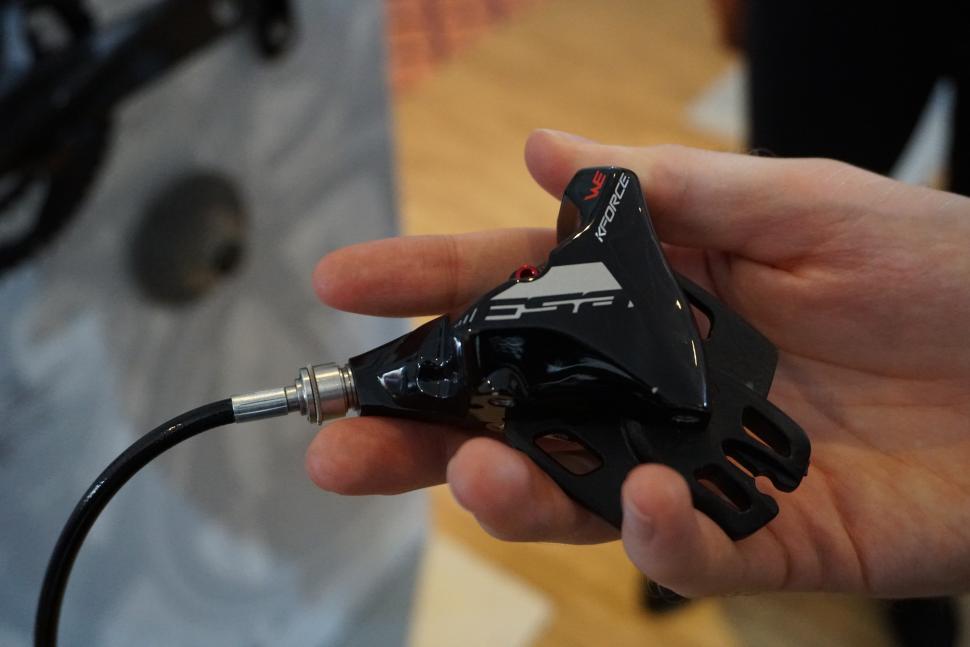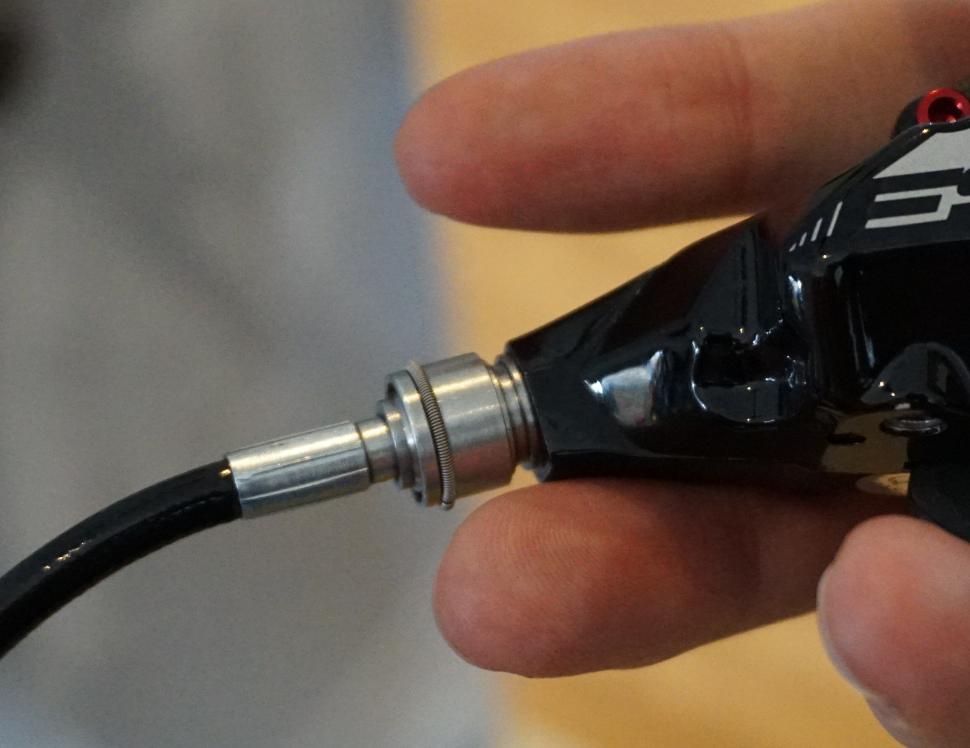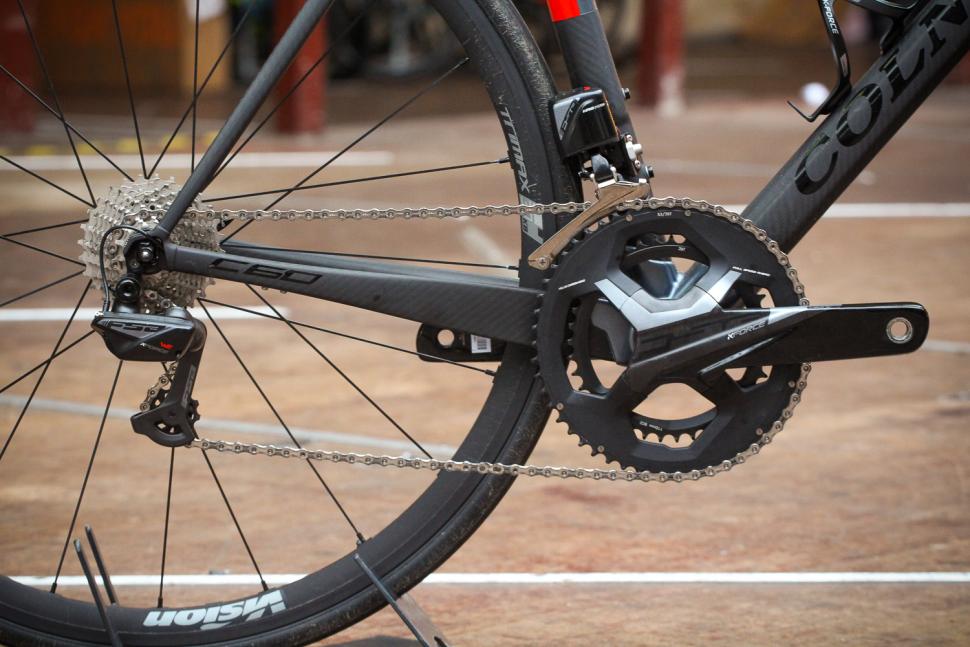- News
- Reviews
- Bikes
- Accessories
- Accessories - misc
- Computer mounts
- Bags
- Bar ends
- Bike bags & cases
- Bottle cages
- Bottles
- Cameras
- Car racks
- Child seats
- Computers
- Glasses
- GPS units
- Helmets
- Lights - front
- Lights - rear
- Lights - sets
- Locks
- Mirrors
- Mudguards
- Racks
- Pumps & CO2 inflators
- Puncture kits
- Reflectives
- Smart watches
- Stands and racks
- Trailers
- Clothing
- Components
- Bar tape & grips
- Bottom brackets
- Brake & gear cables
- Brake & STI levers
- Brake pads & spares
- Brakes
- Cassettes & freewheels
- Chains
- Chainsets & chainrings
- Derailleurs - front
- Derailleurs - rear
- Forks
- Gear levers & shifters
- Groupsets
- Handlebars & extensions
- Headsets
- Hubs
- Inner tubes
- Pedals
- Quick releases & skewers
- Saddles
- Seatposts
- Stems
- Wheels
- Tyres
- Health, fitness and nutrition
- Tools and workshop
- Miscellaneous
- Tubeless valves
- Buyers Guides
- Features
- Forum
- Recommends
- Podcast
TECH NEWS
 fsa quick connect3.JPG
fsa quick connect3.JPGFSA’s new Quick Connect allows easy installation of disc brakes
Bleeding disc brakes can be a messy business, but FSA claims to have developed a neat solution that should, they claim, avoid the need to bleed your disc brakes when building a new bike.
In a running update to its K-Force WE wireless disc brake groupset, it has developed the Quick Connect, a system which lets you very easily and quickly remove the hose from the calliper without fluid spurting everywhere, and without needing any tools.
"Quick Connect allows the easy installation and disconnection of the hose multiple times without losing fluid or introducing air into the brake, but of course you’d need to bleed the system during over time," explains the company.
In an update from FSA, the system doesn't totally eliminate bleeding. Shame. “FSA still recommends regular bleeding of the brakes system to maintain peak performance," it clarified on an email this afternoon.
Sometimes video explains it much better than words ever can. Here is it in action:
This is especially pertinent if you’re building a new frame, which unless it has external routing, you’ll need to remove the hose from the calliper to pass it through the frame. Doing that would normally necessitate a bleed, though sometimes you can get away without doing it, but it’s highly recommended for obvious reasons.
In an idea borrowed from the motorcycle world (and apparently tractors) the new system comprises a ball bearing in one end of the hose and a needle in the other end. When both halves of the hose are connected, the needle presses the ball bearing to allow fluid to flow through. Disconnect the hose and the bearing seals the system. Simples.
If you’re regularly upgrading frames, or dismantling your bike for travel, this system could be very advantageous.
The only downside, apart from it being only available with an FSA K-Force WE groupset, is that it’s not compatible with all frames. The coupling is a bit too large to be accommodated by the internal routing on some frames. And the company doesn’t offer a compatibility guide. We’re told a recently attempted build on a Pinarello Dogma F12 did preclude the use of the new quick connector. And if you need to cut the hose length, that usually means a bleed is needed so it doesn’t quite eliminate bleeding in all eventualities.
But it’s a nice step towards improved user-friendliness and hopefully, other brands will adopt it as well, because we can’t see any reason not to offer it. FSA will still offer its disc brakes with regular connections so it’s very much an optional extra.
It's the first time I've seen such a solution, but a quick Google search does bring up Jagwire Quick-Fit Adapters which sounds similar, but doesn't look the same. Intrigued I am, so I'll try and get some in for testing.
We hope to put the claims of never having to bleed disc brakes again to the test soon, so watch this space.
An FSA groupset with this new technology costs £2,895. More info at www.fullspeedahead.com
David worked on the road.cc tech team from 2012-2020. Previously he was editor of Bikemagic.com and before that staff writer at RCUK. He's a seasoned cyclist of all disciplines, from road to mountain biking, touring to cyclo-cross, he only wishes he had time to ride them all. He's mildly competitive, though he'll never admit it, and is a frequent road racer but is too lazy to do really well. He currently resides in the Cotswolds, and you can now find him over on his own YouTube channel David Arthur - Just Ride Bikes.
Latest Comments
- Rendel Harris 7 min 3 sec ago
Best Bogart voice: "Ilsa, I'm no good at being noble, but it doesn't take much to see that the problems of where to watch cycling don't amount to a...
- ChrisA 7 min 52 sec ago
I'm mising the point here. Why are there (permanant) barriers across the cycle path. It's like a 10 foot section of road where motorists are told...
- SecretSam 57 min 24 sec ago
I've just bought a second hand Mason but that 105 mechanical Strael looks a seriously good deal. Deeply pretty bike and I love the company ethos.
- andystow 4 hours 19 min ago
Ok, just noticing this on my own bike. The rear wheel I bought from wheelbuilder.com. The front I rebuilt on my existing SON hub with a rim ordered...
- hawkinspeter 8 hours 48 min ago
Looks to me like they crashed into a "give way" sign
- jamesha100 9 hours 33 min ago
This is so sad but also so sadly familiar. I am not sure whether more punitive sentences - e.g. life driving bans - would make any difference but...
- chrisonabike 9 hours 53 min ago
Probably. But ... applied / enforced by whom? (See Private Eye's "Rotten Boroughs" page for evidence of how well that might work).
- Miller 10 hours 18 min ago
Because the reframing work in post is a right pain in the neck, the reframed quality doesn't match normal action cams, because the cameras are...


Add new comment
6 comments
Oh so the fluid will also never degrade and the seals never weep any moisture what-so-ever? Hmmm.
Well never mentioned that, there's probably a limit to how long you can run a disc brake system before it needs a bleed. Though I've got some mountain bikes that haven't been bled in many many years #anecdotalevidence
To be fair to Municipal Waste, the headline does state "never need bleeding", which seems a stretch considering the content is quick release brake hoses
Nice idea, although seems almost superfluous for most, I did a hideous rushed job of swapping and shortening hoses on a new set of brakes recently and still got away without having to rebleed.
I think manufacturers should be focussing on pad and rotor technology, pads that don't get contaminated by road spray, pad + rotor combos that don't squeal in the wet, etc.
Nice idea, but I'd've thought that being too wide for some internal routing frames would be more problematic than an occasional bleed. Bleeding brakes (language!) isn't really that difficult and once you know how it only takes 5-10 minutes.
Puzzled by what problem this is trying to solve.
Presumaly the hoses don't come filled with brake fluid so the brakes will still need to be bled when building a new bike.
For ongoing inservice maintenance the brake fluid will still absorb moisture and so require bleeding as often as any other hose type.
Only way to avoid brake bleeding is to use a non-hydroscopic fluid system as shimano does.